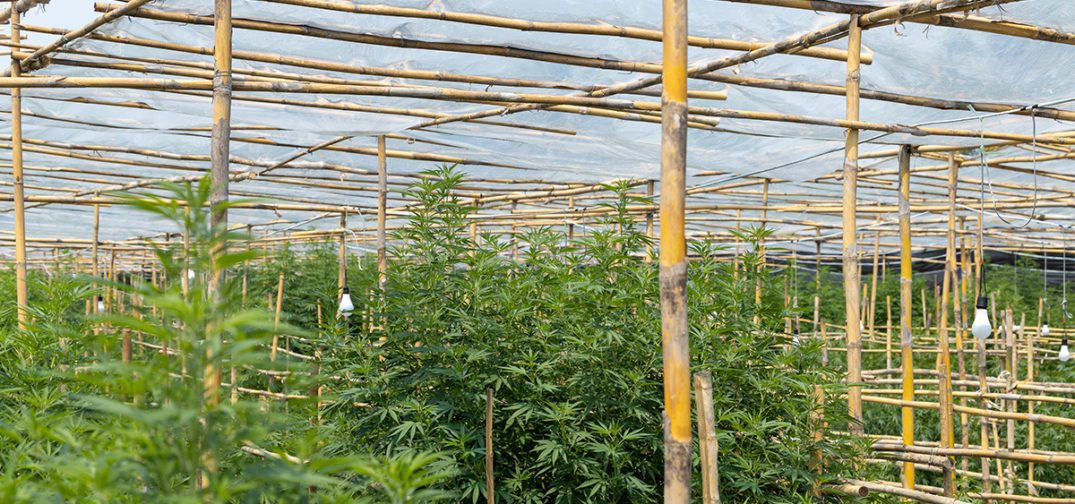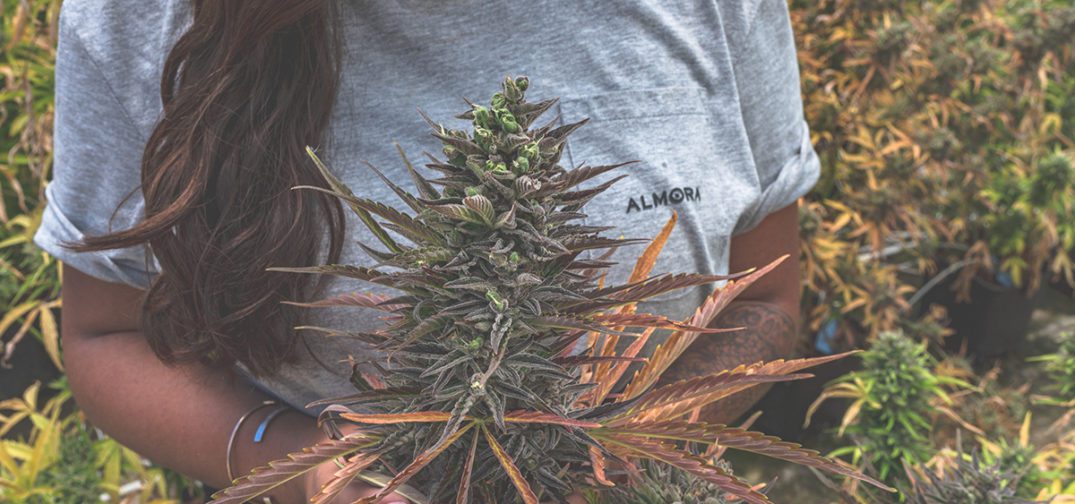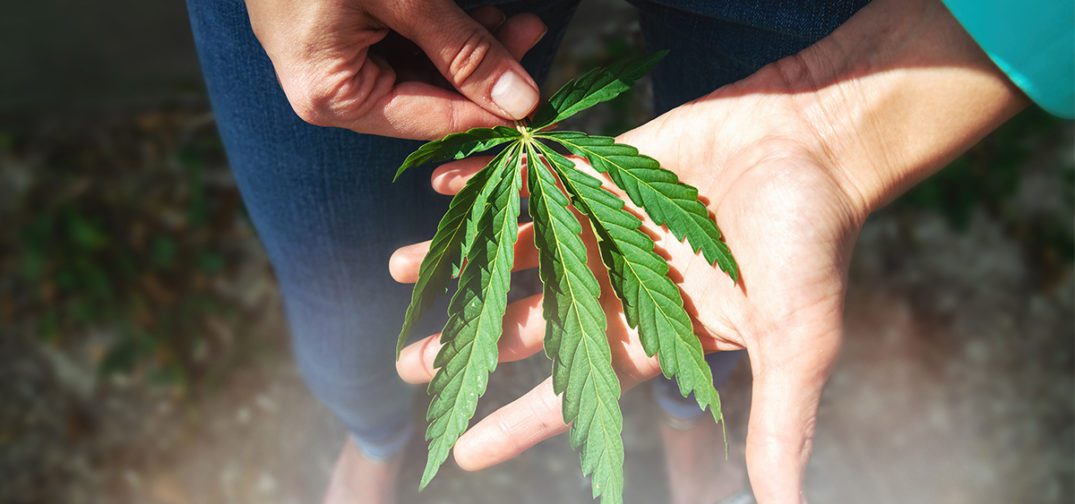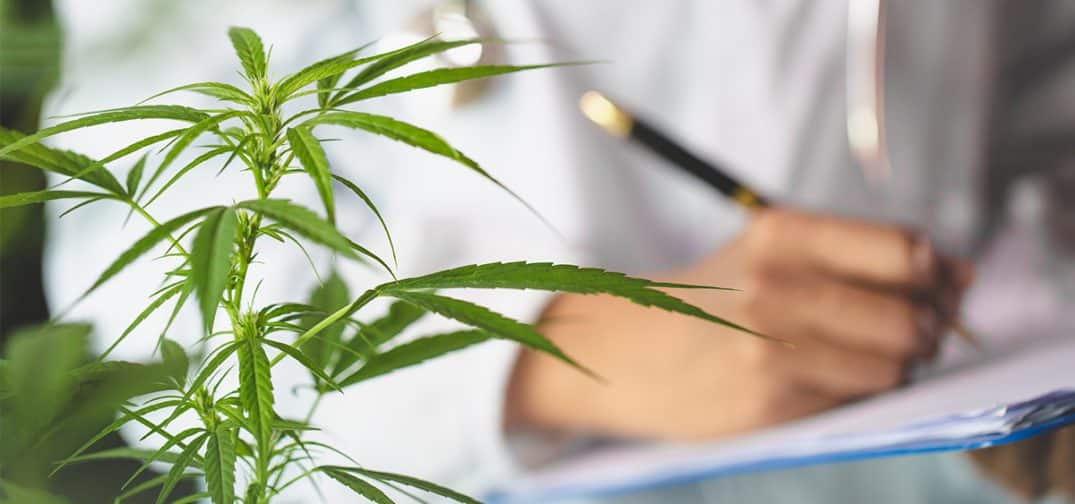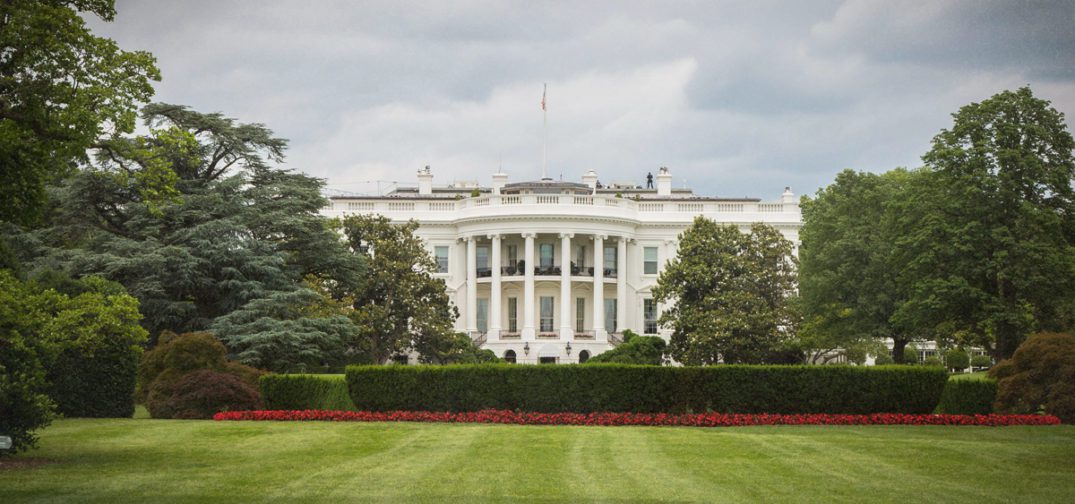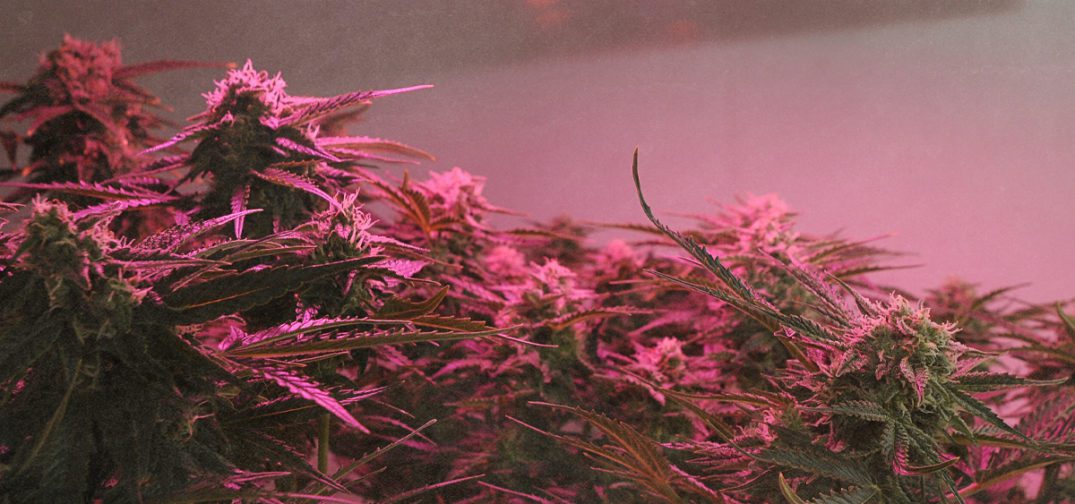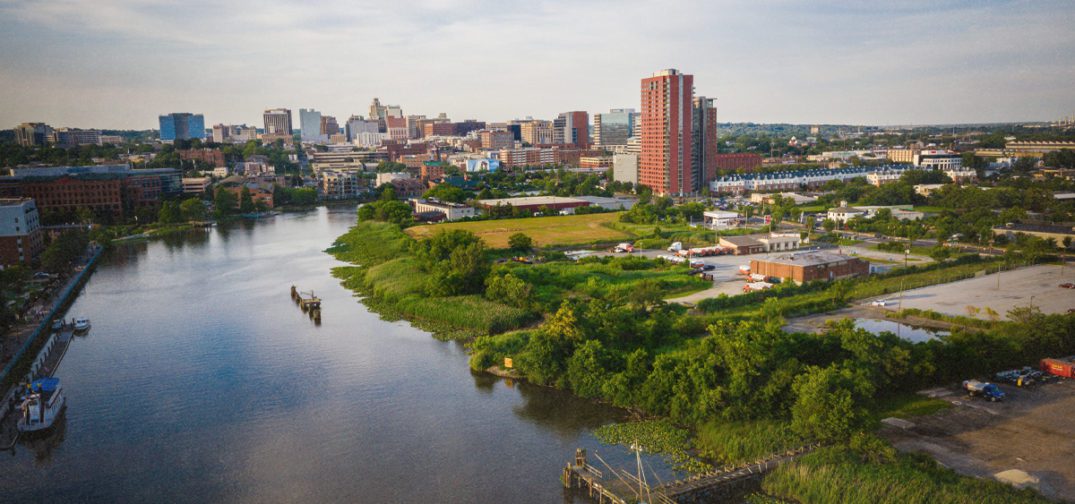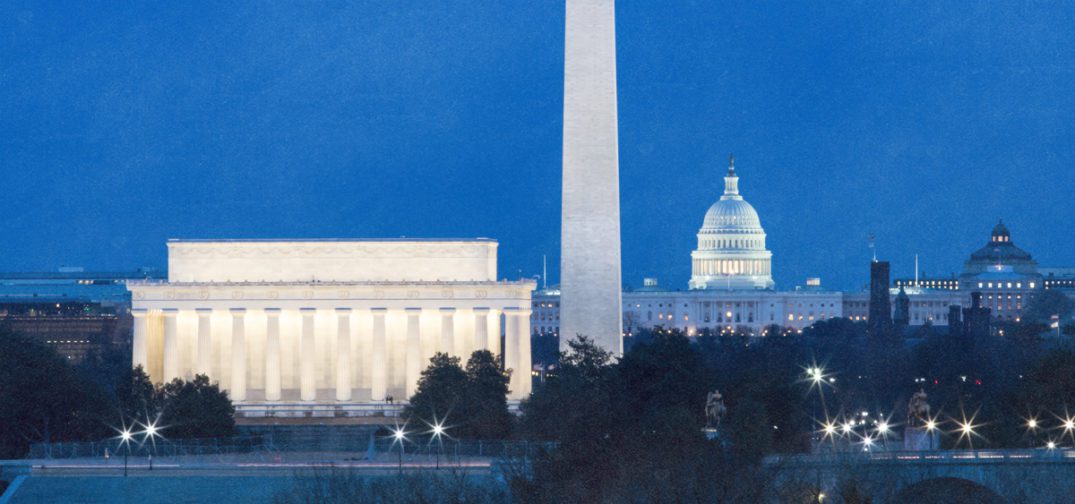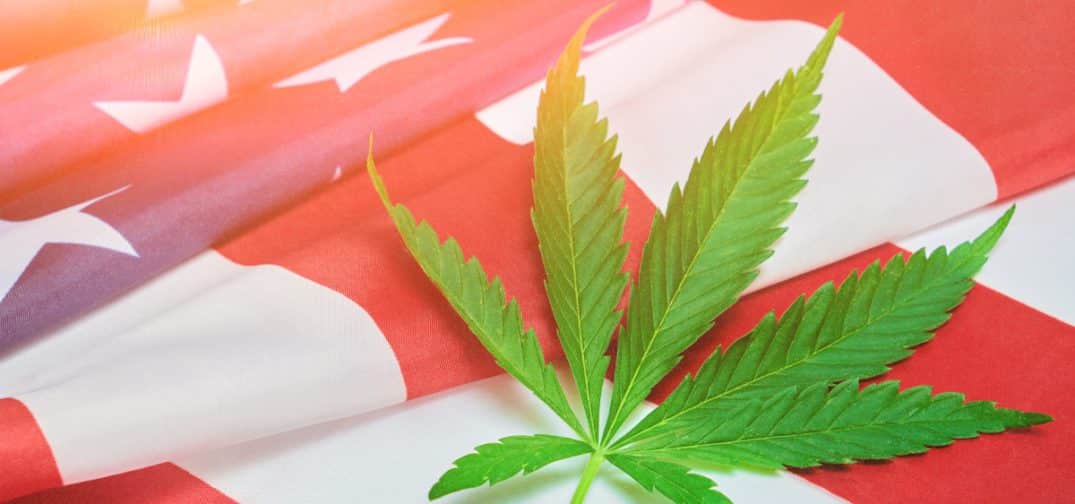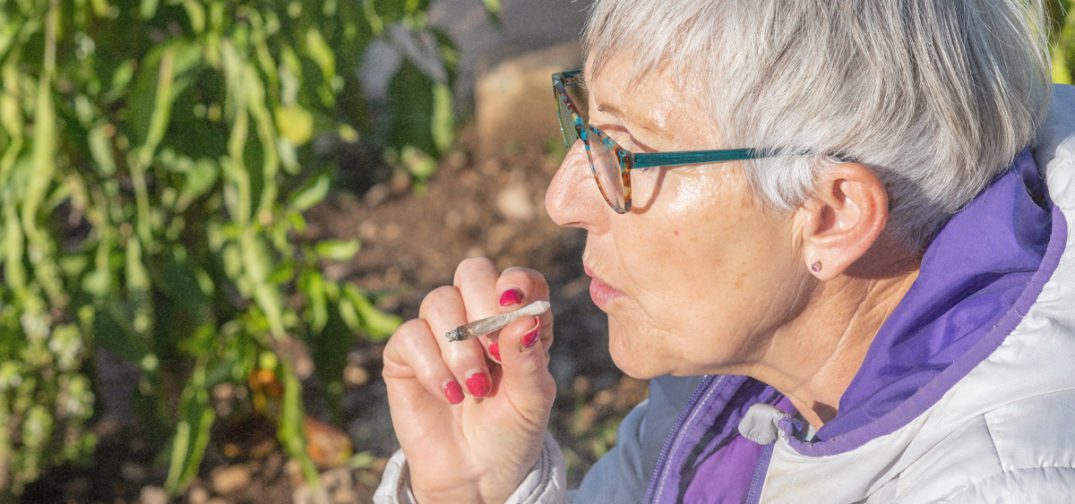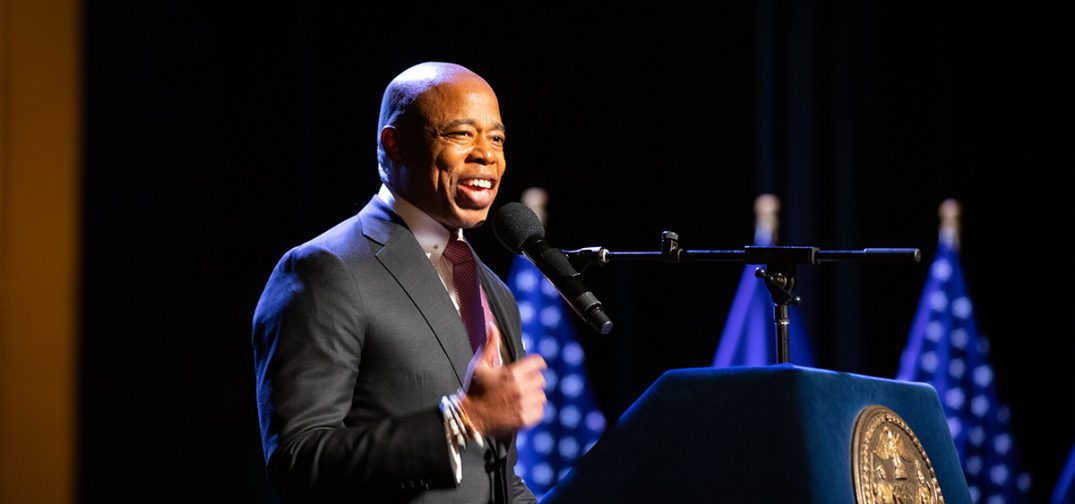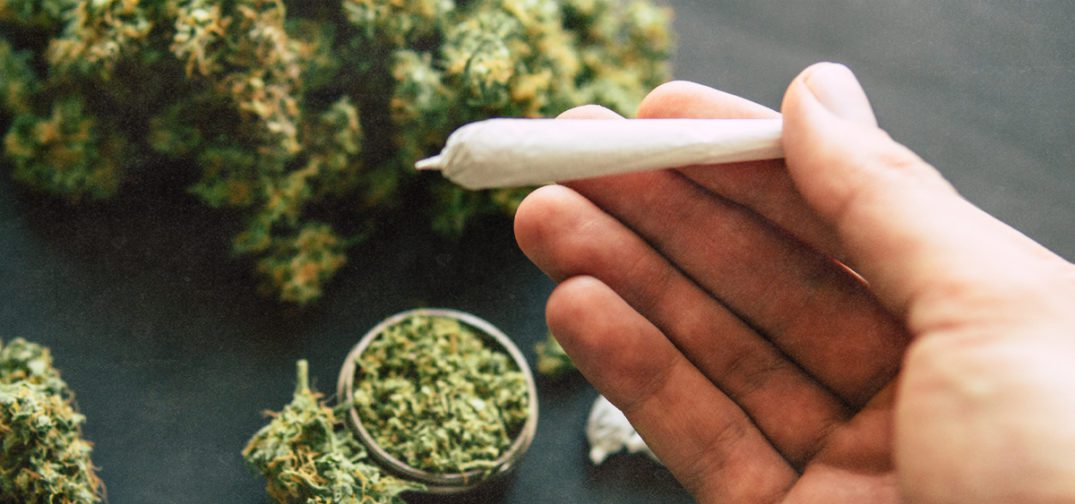Many dispensaries throughout the U.S. are struggling to scale operations and have identified common pain points for their businesses. Tech companies are building software to help but dispensaries often rely on complex integrations to run a compliant retail store. Cree Robinson and fellow co-founder Louis Masensi launched touCanna to be an integrated dispensary software including point of sale capabilities, inventory management, compliance monitoring, task boards, and scheduling and training software.
In this Q&A, we ask Cree about her transition from an academic focus on clinical psychology to a professional career in technology and eventually cannabis. This interview also covers the founding of touCanna, the company’s emphasis on integrating with every aspect of dispensary management, her efforts to support more women of color joining the technology sector, and more!
Ganjapreneur: What was your career before entering the cannabis space? How has that experience influenced your work today?
Cree Robinson: About a year before entering the cannabis space I had transitioned into tech. And I transitioned into tech from a completely non-technical background. I was pursuing a doctoral degree In clinical psychology so I was planning to be a clinical psychologist once I graduated with my PhD. Throughout the transition I grew to really fall in love with technology and everything about the industry. So with my newfound tech skills I was excited to create something innovative for the cannabis industry. I had always had a passion for problem solving and after a couple of years in tech, I had new skills and resources at my fingertips to create solutions for those problems.
The first problem I wanted to solve was the lack of women and specifically women of color in tech spaces that I was in.
However, I knew from experience that making a transition into tech was no easy feat. I benefited from the guidance of my co-founder Louis, who had made a similar transition years back, in getting into the tech industry.
One of my goals is to provide similar guidance and mentorship to those wanting to make the same transition I did.
The road to a doctoral degree requires years of planning and hard work. Why did you transition out of that path into tech?
You’re 100% correct — it does take years of planning and hard work which is why it’s so important to take the time to make sure that pursuing a doctoral degree is the right choice for your goals. I’m not sure that I did that. I pursued a doctoral degree because I thought it was the “right” next step — in my head there wasn’t even an alternative. I started my grad program at 21, immediately after college so I had no time to really ensure that a doctoral degree was the right path for me. All that to say, I quickly discovered that it wasn’t. I wasn’t happy with the work that I was doing and knew I wouldn’t be able to sustain the full 5 years it would have taken to get my PhD. I always had an interest in tech, so much so that I had plans to pursue a Master’s degree in computer science after my getting my PhD (insane right?). So, once I dropped out of my program after getting my Master’s, I felt completely free to purpose technology and started along that path.
What inspired you and co-founder Louis Masensi to build touCanna?
We wanted to create something innovative for the cannabis industry using the skills that we already had. We went down several rabbit holes before we decided to conduct interviews with existing business owners in order to understand what their pain points were, directly from the source. Our learnings from those interviews led us to create something that addressed as many of those pain points as possible. Listening to existing business owners and learning of all the challenges that came with operating a cannabis business in such a young industry, we were inspired by the resilience and creativity they displayed with creating the necessary workarounds for their business and their staff.
Did you gain any specific insights that went directly into the final product after speaking with existing cannabis business owners?
Absolutely. When we started these interviews, touCanna was very different from what it is today. Initially, touCanna was simply a point-of-sale system that only handled a retail operator’s sales and inventory and reported that data to METRC (a state tracking system). However, after speaking with so many retailers, we realized that the tools that they had in place were not designed to support business growth or scale. So, we went back to the drawing board and began to design features that would do just that. For example, an overwhelming majority of the retailers we talked to shared challenges related to employee turnover and training, so we created a robust module that would allow retailers to create their own trainings and assessments for employees; we created features centered around measuring and managing employee satisfaction and performance. Owners also shared struggles related to managing policies and standard operating procedures (SOPs), so we created features that allow for the management and creation of those. Essentially, if a pain point was mentioned multiple times by multiple business owners, we tried to create a feature that would solve for it.
How does touCanna differentiate from other Dispensary Operations Management Software (DOMS) in the space?
touCanna is different from other systems in that it provides a one-stop shop for cannabis business owners. Our motto is, “login once, get everything done” because we aimed to build touCanna to meet all of a cannabis team’s core needs. While other platforms provide great services, many require integrations with third-party systems in order to give a cannabis business everything it needs. With touCanna, cannabis operators can manage everything they need in their business from 1 source. For example, that’s their sales and inventory, employee training and performance, SOP and policy creation, staff scheduling and several other features that allow them to manage their businesses end-to-end.
What kind of employee training and human resources assistance is made available through the DOMS? Can a client tailor these offerings to their dispensary?
With touCanna, clients can create their own training as well as assessments to be associated with those trainings. That way, training for new and existing employees can be standardized and automated. We’ve gotten a very positive client response from this feature because the way that a manager creates the training is very simple, dynamic, and can include any media that they wish to use whether it be a quick video they create themselves, a word document that includes store procedures, or even a simple link to a YouTube video. Regarding human resources, clients can manage employee performance, goals, performance review meetings all through the touCanna platform. touCanna offerings, however, can be tailored based on the needs of the business. So, in other words, while touCanna does offer different subscription packages, clients can customize their own if there isn’t an out-of-the-box solution that meets all of their needs.
How does touCanna stay informed and compliant for clients across the states? What informs this piece of touCanna?
Being that compliance is arguably the most important aspect of the cannabis industry, we make sure to do our due diligence to ensure that touCanna remains compliant across all of its customer markets. The touCanna team keeps a technology compliance expert on retainer so that we can work with them and make any necessary updates to the platform in the case of regulation changes.
Furthermore, we are subscribed to receive every Metrc update announcement and carefully review them before implementing into our platform.
How much data (both consumer-facing and internal operations data) does touCanna store? How can a dispensary owner leverage this information to increase sales?
touCanna securely stores both consumer-facing and internal operations data and allows owners to create reports to make sense of the data and understand how they can use it to understand their target clients and thus improve sales.
Why has the startup spent time and resources developing a white paper with step-by-step methods for implementing a successful framework in cannabis, whether a company is using touCanna or not?
Our overall goal with touCanna is to create tools and resources that help cannabis business owners to be as successful as possible in their businesses. Over the course of this journey, we’ve conducted 100+ interviews with cannabis business owners and have learned so much about how business is conducted, the challenges, the positives and everything in between. We wanted to create this white paper in order to share our learnings with future business owners in hopes that the framework we’ve created will provide them with some guidance to build and scale their dream businesses while potentially avoiding challenges and compliance risks.
How have you used your experience to mentor women of color transitioning into tech?
Transitioning into tech can be challenging without the guidance about which path in tech is best based on current skills and interests. My goal is to be that source of guidance and “soundboarding” as much as possible for women of color who are looking to embark on a career journey in tech. As of now, I have a few mentees with whom I work closely each week to map out their next steps on securing their desired roles in tech. We talk about everything from negotiating the workplace as a woman of color to salary negotiation to covering hands-on tech skills like UX design or database scripting. I’ve also compiled a lot of my lessons learned and use them to create short-video content about tips and tricks that have helped me throughout my journey. Lastly, my co-founder Louie and I manage a Facebook group of 200+ women whom we work with to help secure a role in tech.
How can someone select a mentor, and then what is the process of asking to be a mentee?
Selecting a mentor, in my opinion, should be a relatively organic process. A mentor/mentee relationship should be similar to a friendship in the sense that both parties want to be present and both strive to create a space of mutual trust. Sometimes you can just “fall” into a relationship with a mentor and it goes unsaid. In many other cases, it may be necessary to just ask someone. I’ve tried this approach and was quite surprised by the response that I often received. Most people were honored and excited to take me on as a mentee. It often just needs to start with the ask, and the rest of the relationship will build naturally from there.
Your social media content teaches people how to apply for tech jobs, negotiate salaries, and more. Why do you make this content, and how do you choose what to cover in your videos?
I try to create content that I wish I would have come across during my transition into tech. I love this avenue because I can reach so many more people than I’d be able to through one-on-one coaching or individual mentoring. The response that I get from people who watch my content is so motivating and helps to inspire new ideas for content. For example, if I make a video about salary negotiation and someone posts a comment asking about when to bring up salary during an interview, that may prompt me to create an additional 3 or 4 videos about interviewing. I love it because it allows me to create content that people actually need and are interested in.
Thank you, Cree, for answering our questions! Visit touCanna.io to learn more.

